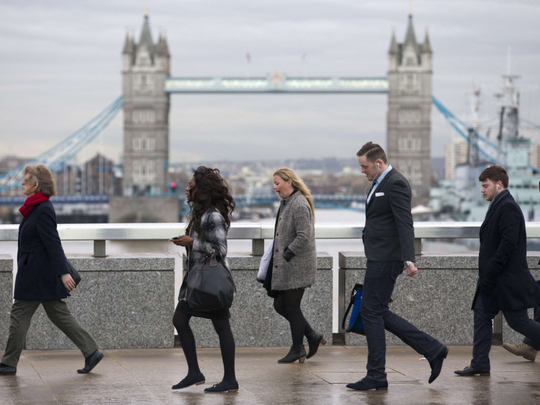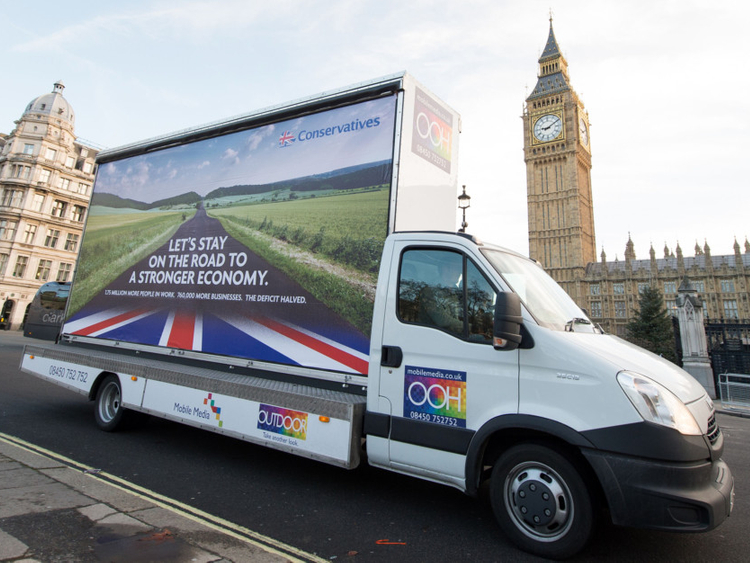
At the time of the last election, Prime Minister David Cameron pronounced that TV debates were “here to stay”. It was his confident declaration that: “We will have them in every election in the future and that is a really good thing for democracy.” Many others thought so too. More than 20 million people watched some or all of them. They engaged voters in ways that we hadn’t seen before in Britain. To many, it was unthinkable that they wouldn’t become a permanent feature of the fabric of our elections. It gives me no pleasure to say that I have always had great doubts that this was really the case. For it to be true, you had to trust the Tory leader not to change his mind.
TV debates happened in 2010 only because of an unusual set of circumstances. Cameron had demanded them because that is what opposition leaders nearly always do. Deputy Prime Minister Nick Clegg wanted to gain exposure that no previous third party leader had enjoyed. In the wake of the expenses scandal, all the parties were anxious to be seen trying to connect with alienated voters. The key was Gordon Brown. Unusually for a prime minister, he agreed to debates. His people thought he had little to lose and, in a typically Gordon Brownish way, he reckoned he would come over as the man of substance while his Tory and Lib Dem rivals would be exposed as lightweights.
It didn’t work out as Brown expected. But what is most relevant to what is happening now is that it didn’t work out as Cameron anticipated either. The Lib Dem leader, an unknown to many voters before the debates, shone in the first one, presenting himself as the true candidate of change to the disadvantage of David Cameron and unleashing the “Cleggmania” that now seems so long ago. On election night, I was aboard the boat in the Thames hired by the BBC. Among those also present to comment on the results was Michael Ashcroft, the Tory donor and pollster. As it became clear that his party had failed to secure a majority, he placed the blame on the TV debates. That view has since become orthodoxy in the Conservative party. Whether it is entirely true or not, it has been engraved into the Tory soul.
Two people were very badly burnt: Cameron himself and George Osborne, who ran the last Tory election campaign and was widely castigated by his colleagues for agreeing to the debates. The chancellor long ago told friends that he is not going to make the same mistake twice. Lynton Crosby, the prime minister’s Australian strategist, is also dead-set against TV debates. Craig Oliver, the Number 10 communications chief who has been leading the Tory side in the debate negotiations, is another key figure who believes it is all downside for them.
The first reason that Cameron and his advisers are against debates is the traditional one. He doesn’t want to concede equality of status to his opponents. The experience of the Clegg-Nigel Farage debates during the Euro elections hardened the belief in Number 10 that debates are bad for incumbents and a gift to challengers. The view around Cameron is expressed by one close ally: “If you are the incumbent, debates are heavily weighted in favour of the insurgents. It is a rigged game.”
It is not, as is often assumed, fear of UK Independence Party’s (Ukip) Nigel Farage coming at him from the right that most worries the prime minister. His biggest concern is giving a boost to Labour’s Ed Miliband. TV debates are the Labour leader’s best remaining opportunity to secure mass exposure to voters sceptical that he is up to being prime minister and get them to reconsider their view. So poor are his personal ratings, Miliband might only have to turn up and string together a few half-decent sentences and more people would think better of him. The hope that their man could benefit by exceeding low expectations is why Labour is desperate for debates to happen. Which makes the Tories equally desperate for them not to happen.
The Conservatives, as we saw last week with their “dodgy dossier” about Labour’s spending plans, want to revert to an old-fashioned model of election in which the campaign is dominated by staged leaders’ tours in which the prime minister wafts around the country looking presidential and morning news conferences designed, with a bit of help from their friends in the press, to shape the campaign to a Tory agenda. So, from the off, the Conservatives have done everything in their power to prevent TV debates from happening at this election. The broadcasters and the other parties wanted to begin negotiations about the format last spring. The Tories stalled, saying they wouldn’t start talking until October. When the negotiations finally got under way, I am told, and by a variety of different sources, that the Conservatives were determined to block any progress toward agreement.
“At every stage, they sought to put obstacles in the way,” says one source. Another confirms: “The Tories kept throwing spanners in the works.” According to a third: “All the parties, including Ukip, took part in good faith except the Conservatives.” Last time around, “a heads of agreement” about the debates had been written by December. This time around, we have got to mid-January and aren’t even close to that. The last meeting was just before Christmas. “We didn’t get anywhere because of the Tories,” says one source, an account that is again corroborated by others. I have learned that a meeting between the parties and the broadcasters was scheduled for the Thursday just gone. It was cancelled at the last minute by the Conservatives. No new date has been set.
The prime minister’s latest excuse for nobbling debates is that he won’t do it unless the Greens are included. I happen to agree that the Greens ought to be represented in one debate. There is not much logic to Ofcom’s recent preliminary recommendation that Ukip and the Lib Dems should be treated as “major” parties for the purposes of allocating airtime during the campaign, but not the Greens. They have been nip and tuck with the Lib Dems in the opinion polls and quite often done better. They have had representation in the House of Commons for longer than Ukip. So I agree that it would be fair to include the Greens — and hoot with laughter to hear that argument coming out of the mouth of Cameron. When did he become obsessed with championing the rights of minority parties? Who knew he had such a passion to debate with Natalie Bennett ? In the history of political excuses, this must go down as one of the most terrible.
By running away from debates, the Tories are taking some risk with their leader’s reputation and sense of himself. Says one senior government figure: “Cameron doesn’t like being called chicken.”
If the Cameron brand is supposed to be the strong and confident leader, why is he frit of debating Ed Miliband, a man the Tories keep telling us is hopelessly weak? Won’t it simply look bad to deny TV debates to the voters? Yes, it will, but the Tories are calculating that any fuss will be short-lived, soon forgotten and, in the end, not that many voters will punish them for it, especially if their spinners can successfully sow confusion about who is responsible. The Tories also bargain that the press won’t make that big a deal of it. About that, they may be right. There was resentment among newspapers during the last campaign that their capacity to shape the agenda was reduced by the TV debates. There are journalists and editors who will be secretly happy if they don’t happen again.
As things stand, I think the chances of TV election debates happening are somewhere between zilch and nada. Could anything change that? Some suggest that the broadcasters should call Cameron’s bluff and threaten to stage debates without him — “empty chair” him in the jargon. Labour and the Lib Dems hope this will happen. Number 10 is assuming that the BBC wouldn’t have the nerve, the other broadcasters will follow its lead, and holding a debate without Cameron might anyway be a breach of the laws about election coverage. A debate between everyone but the prime minister could even suit the Tories when they want to project him as the statesman floating above the fray.
A more realistic way to flush him out would be to strip him of the Green figleaf he is using as his pretext for not debating. The broadcasters could redraft their proposal to include Natalie Bennett in one of the debates. Labour, the Lib Dems and Ukip could say that they’d be content for her to participate. I think they would. Labour and the Lib Dems aren’t keen on including the Greens, who have been taking votes off both of them, but when it comes to the crunch, they’d rather have a debate with the Greens than no debates at all. Even then, the Tories are so determined to avoid TV debates that they’d most likely concoct another pretext for sabotaging them. But at least everyone would then be crystal clear who is to blame.
— Guardian News & Media Ltd











